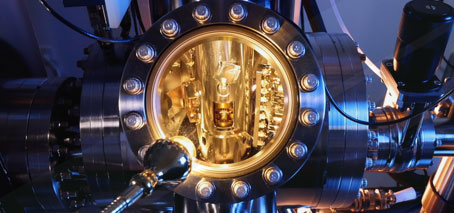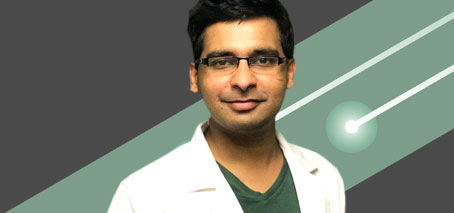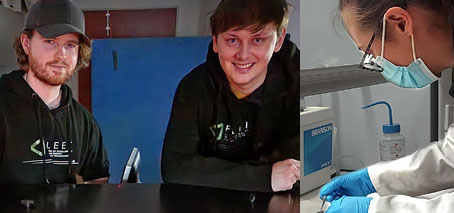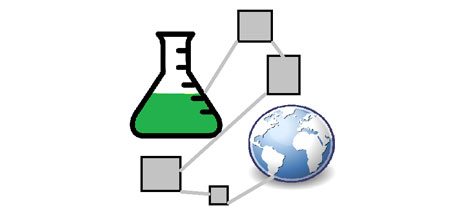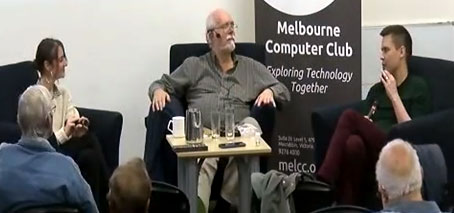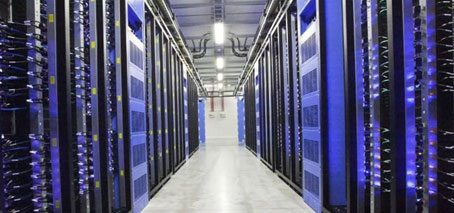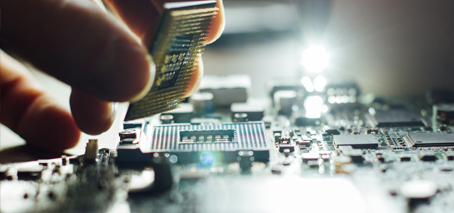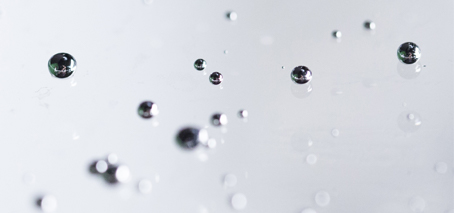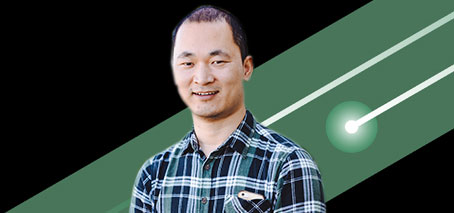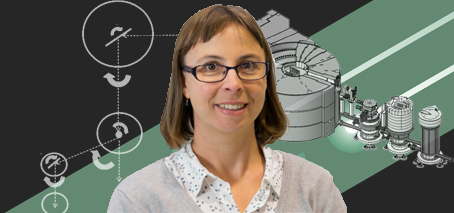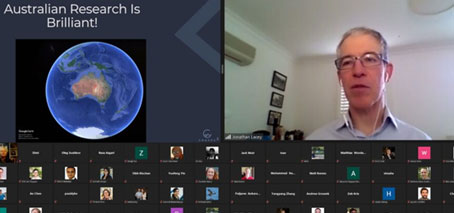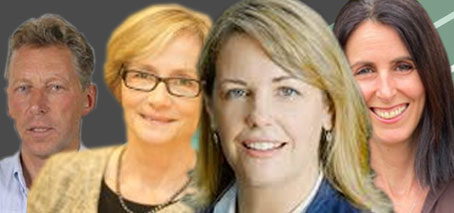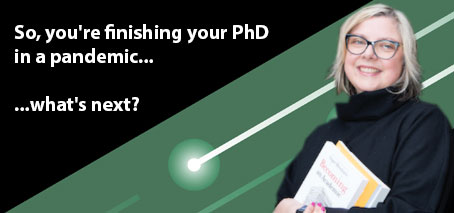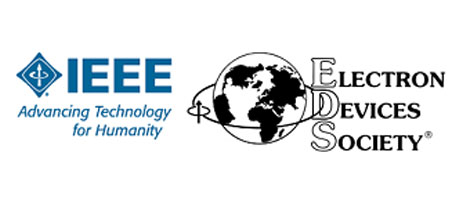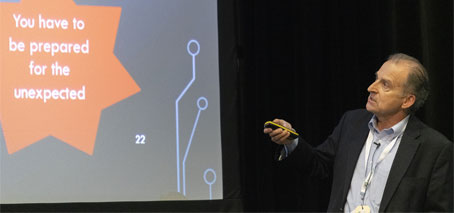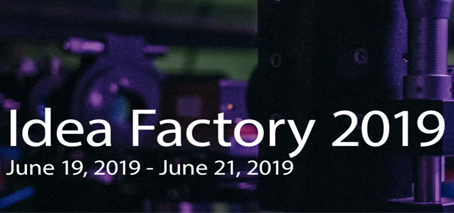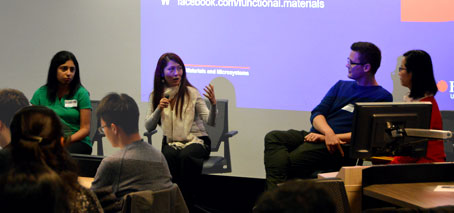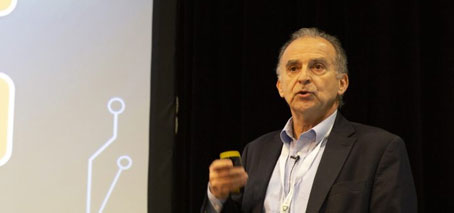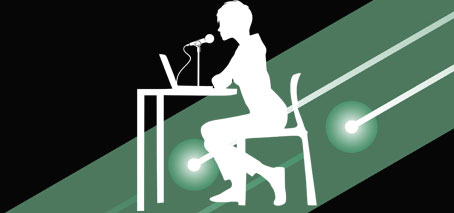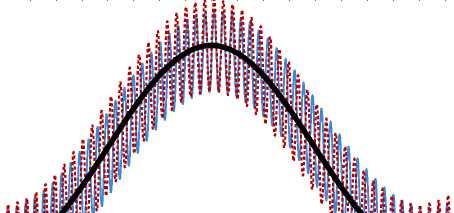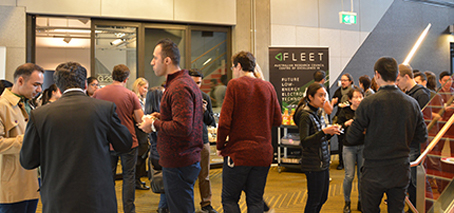FLEET Translation Program funding to automate the ‘boring parts’ of STM experiments, freeing up operators’ time Monash PhD candidate Julian Ceddia has been awarded funding from the first round of the FLEET Translation Program to further develop the automation of Scanning Tunnelling Microscopes (STMs), based on previous work from the group of his supervisor, Agustin Schiffrin. STMs are capable of …
New FLEET Industry Relations Chair
FLEET is very pleased to report that Centre AI, Sumeet Walia at RMIT has been nominated by the FLEET Executive Committee to chair our Industry Relations Committee from Aug 2022, and has agreed to take on the position. The Centre Exec and Ops Team would like to thank Torben Daeneke for his leadership in the past two years as Chair …
What you see is what you get with pre-characterised TMDs: FLEET Translation Program
First project approved for FLEET Translation Program funding PhD candidates Mitch Conway, Abby Goff, and Jack Muir have recently been awarded $31,000 in FLEET’s first round of funding from the FLEET Translation Program (FTP). Their cross-node collaboration between Swinburne and RMIT aims to create a catalogue of high quality 2D materials, namely transition metal dichalcogenides (TMDs) and their heterostructures. …
Translating research discoveries: introducing FTP
“Inventions and new products come from combining novel and existing technologies” (Joseph Schumpter) What is ‘translation’ anyway? And what are the benefits for me / my work? Does this apply to my work? Will industry be interested in what I’m doing? (Spoiler: Yes it does! Matt Davis explains quantum weighbridges) How can FLEET help me do this? A FLEET audience …
Engaging with end-users: Meeting the Melbourne Computer Club
What is the future of computing? As Moore’s law is approaching an end, new technologies are required to enable further advances in computational speed and energy-efficient data processing. As transistors took their first baby-steps over half a century ago, the next generation of electronic switches are being born today. Engaging with the Melbourne computing and electronics community in a ‘fireside …
Engaging with industry in 2020
FLEET is building links with partners interested in novel electronic devices and systems working towards the overarching goal of creating pathways to translations of research outcomes. Progress towards this important goal in 2020 included: Adding topological transistors to the Institute of Electrical and Electronics Engineers (IEEE) International Roadmap for Devices and Systems Lodging two provisional patents: topological switching (Fuhrer Monash and …
Topological-switching patents demonstrate FLEET’s dominance in field
Two patent applications, one filed in 2020, reinforce FLEET’s position as a world leader in topological transistors. The patents cover work in the ‘switching’ of topological material, to facilitate creation of a functioning topological transistor – a proposed new generation of ultra-low energy electronic devices. Their world-first success was the switching of a material via application of an electric-field between …
Liquid metals spin-off launched
The Liquid-metals spin-off company Liquid Metal Plus (LM+) initiated in 2020 with FLEET investigators Kourosh Kalantar-Zadeh (UNSW) and Dr Torben Daeneke (RMIT), together with Dorna Esrafilzadeh (UNSW), was launched in April 2021. Pushing print on flexible touchscreens Climate rewind: turning CO2 back into coal The company has two areas of focus, with the unifying theme being application of liquid-metal technologies …
Explainer: Linkage funding for topological-thermoelectricity
A team led by FLEET CI Prof Xiaolin Wang (University of Wollongong) has won a linkage project for topological materials based thermoelectricity. Thermoelectricity can directly convert heat to electrical energy or vice-versa. It plays an important role in renewable and sustainable energy by harvesting waste heat, which is widely available in human body, computer chips, sunlight and steel industry. Thermoelectric …
Thermoelectric devices convert waste heat from industry into viable new energy source
New research supports development of thermoelectric devices to convert waste heat from industry into a viable new energy source Australian industries could benefit from being able to harness the heat by-products from operations Development of advanced materials can sustainably convert waste heat into useful forms of energy to benefit Australia. The work will be undertaken as part of an Australian …
Building future science leaders in 2020
FLEET ensures that our young researchers are prepared for future success – wherever their career takes them. The Centre currently supports 64 higher degree by research (HDR) students and 45 postdoctoral researchers with another 21 research affiliates working on FLEET projects and invited to Centre training, workshops and events. FLEET connects its researchers with internal and international networks, for example, …
Skilling up our people in 2020: research impact and industry engagement
—Who would be interested in my research? Who would benefit from it the most? —How can I pursue high-impact research? —How does research translation work? —If I’ve developed some cool intellectual property, where would I start with industry engagement? —How do I effectively ‘sell’ the value of my research in an award application/grant/job interview? While researchers are typically familiar with …
Putting FLEET science on the map
Topological transistors added to IEEE International Roadmap for Devices and Systems The remarkable advances in semiconductor technology (guided by the so-called ‘Moore’s Law’ over some six or seven decades) don’t just happen. They are steered through an international, pre-competitive industry roadmap. The IEEE International Roadmap for Devices and Systems ‘IRDS’ is the latest semiconductor roadmap, guiding development of more conventional …
Invited: Research Translation Journeys
About the presenter Jonathan Lacey has been involved with technology commercialization since the late 1980s, as a researcher and inventor, product champion, investor and entrepreneur; at universities, large corporations and start-ups. He had 10 years experience working in Silicon Valley with HP-Broadcom. He joined CSIRO in 2011 to drive commercialization of the NGARA wireless communications technologies, and more recently …
ARC funding for FLEET investigators
Australia’s Minister for Education Dan Tehan announced $280 million in funding for new research collaborations to start next year. This month’s ARC Discovery Project and Linkage Project funding announcement includes eight grants for projects and facilities led by or involving FLEET researchers. While these projects are distinct from FLEET’s mission to build low-energy electronics, they testify to the capacity FLEET …
Adding expertise with new Centre advisors
FLEET has significantly added to the expertise available to guide Centre policy and science, with the latest additions to the FLEET Advisory Committee (FAC) and International Scientific Advisory Committee (ISAC). We welcome to our Centre advisory committees Professor Rebekah Brown (Monash University), Dr Esther Levy (Wiley), Francois Peeters (University of Antwerp) and Joanna Batstone (ex IBM). Prof Rebekah Brown is …
Semiconductor industry links and resources
A collection of links and resources relevant to semiconductor/electronics/CMOS industry Additions/improvements welcome! (Email Errol) The semiconductor value chain : image Semiconductor manufacturing process: image Semiconductors: The Ultimate Bargaining Chip: video – Semiconductors’ role in society, future’s dependency on them. NZS Capital’s Jon Bathgate & Brinton Johns explain major semiconductor players, what’s important, how things work, complications of geopolitics. Global data …
Skilling researchers up for a post-pandemic career
Around 35 PhDs and other Early Career Researchers from FLEET and partner organisation the MacDiarmid Institute took a chance last week to learn how to take control of their future in these uncertain times, and to gain a better understanding of the job market (both in academia and industry) with a targeted, one-hour workshop from “the thesis whisperer”. A/Prof Inger …
What comes after CMOS? An expert discussion
A panel of experts featuring Dr Paolo Gargini (formerly Intel, head of several international semiconductor roadmaps), Prof Michelle Simmons (UNSW, Director. ARC Centre for Quantum Computation and Communication Technology) and Prof Michael Fuhrer (Monash Uni., Director of ARC Centre of Excellence in Future Low Energy Electronics Technologies.) and a guided discussion about the future of electronics beyond CMOS and the role semiconductors and other materials …
FLEET’s engagement with industry in 2019
Working towards the overarching goal of creating pathways to translations of research outcomes, FLEET is building links with partners interested in novel electronic devices and systems. Progress towards this important goal in 2019 includes: Working to include topological transistors in the Institute of Electrical and Electronics Engineers’ (IEEE) International Roadmap for Devices and Systems Lodging two provisional patents Collaborating on …
Building future entrepreneurs: Idea Factory 2019
It’s not easy to convince a group of PhD students and early-career researchers to take three days away from their research to complete a training course. Yet this type of training can provide incredibly valuable skills for these researchers in their future careers and endeavours. At Idea Factory 2019, a joint project with FLEET and the ARC Centre of Excellence …
YouRforum 2019: Got PhD, what next?
Jobs in many of the fastest-growing industries require science, technology, engineering and mathematics (STEM) skilled professionals. The Young Researchers Forum, aka YouRforum was created by FLEET COO Dr Tich-Lam Nguyen (then at the Monash Centre for Atomically Thin Materials) to provide opportunities for young STEM researchers to network, discuss research ideas and practice their professional skills. The program‘s ‘Got PhD, …
Materials Research in the Electronics Industry
The electronics industry has led the development of new materials to support the scaling of silicon device technology to meet the ever-demanding Moore’s law [i] over the last 70 years. Silicon dioxide is a prime example of such scaling from a thickness of several hundred nanometers to about 2 nm at the end of the 1990’s. At that time nitrogen …
Pitch perfect: 2018 Idea Factory
In 2018, FLEET began an ongoing partnership with the ARC Centre for Engineered Quantum Systems (EQUS) to run a yearly ECR workshop building skills in communication, methods for pitching and presenting science, and working collaboratively with others. In between the teams’ pitch preparation and delivery, formal training sessions included science communication, oral presentations and how to craft an engaging research …
Interactions within quantum batteries are key to their charge advantage
Recent theoretical studies at Monash University bring us a step closer to realistic ‘quantum batteries’. Such technology would depend on the energy difference offered by different quantum states, rather than on electrochemical changes, as is the case in traditional batteries. Quantum batteries also offer potential for vastly better thermodynamic efficiency, and ultra-fast charging time. The study, which was co-led by …
Got a PhD? What’s next?
Where can your PhD take you? And how can you maximise your potential future? A group of STEM PhDs and higher degree researchers heard about career options post-PhD at a forum last month, run by FLEET at Monash University. The assembled panel of academics, entrepreneurs, business development and research managers shared their own diverse career journeys and top tips on …
- Page 2 of 2
- 1
- 2

